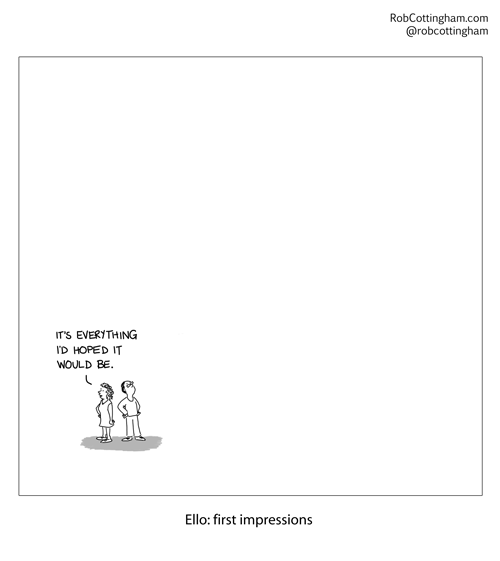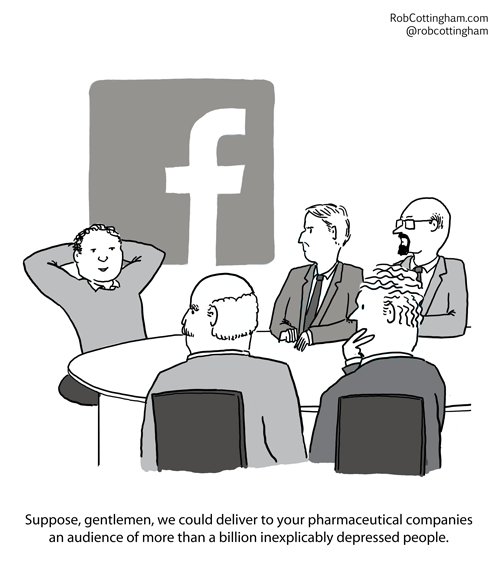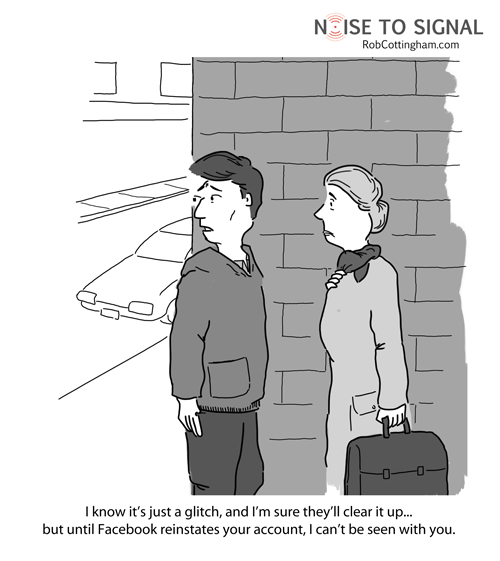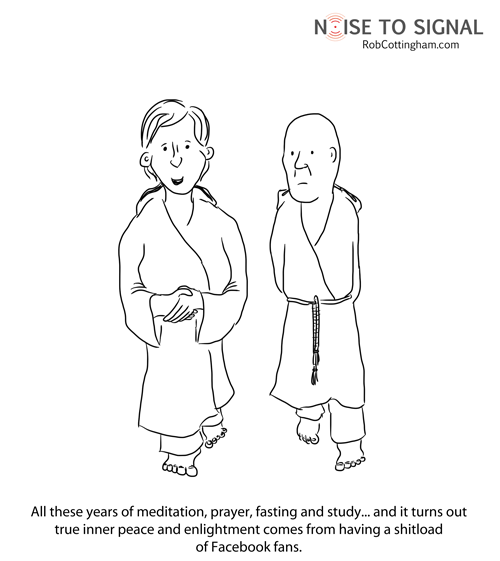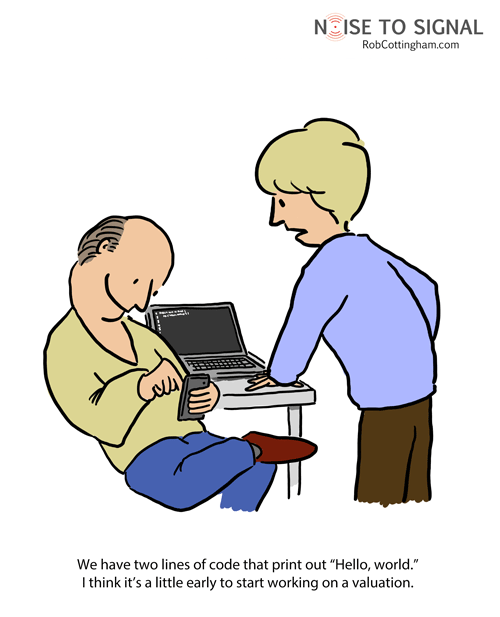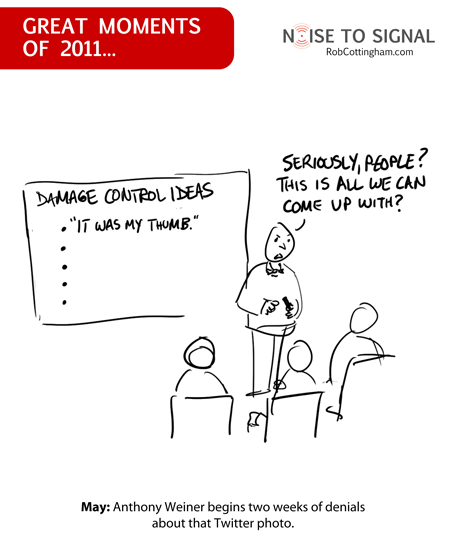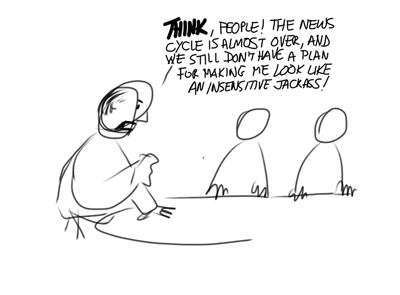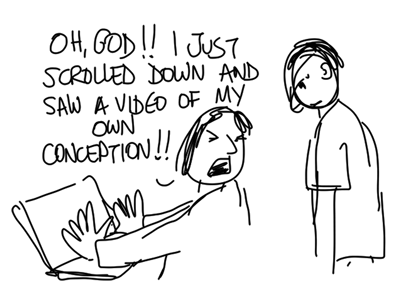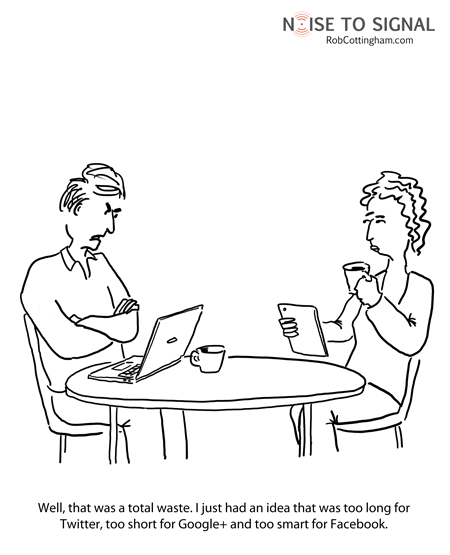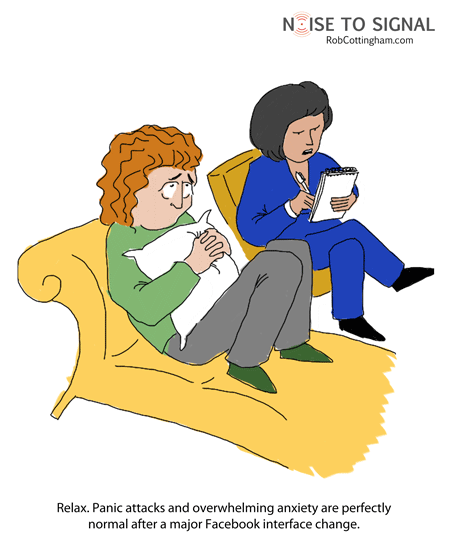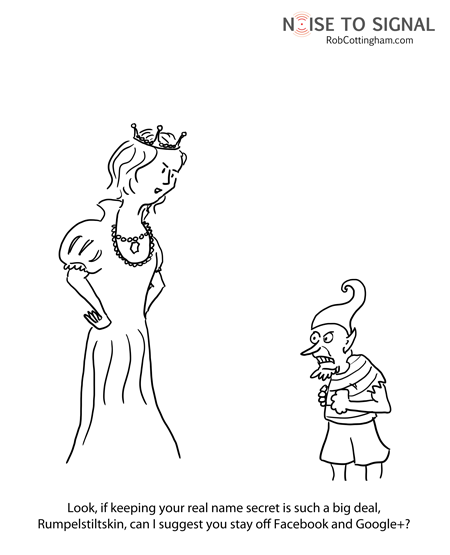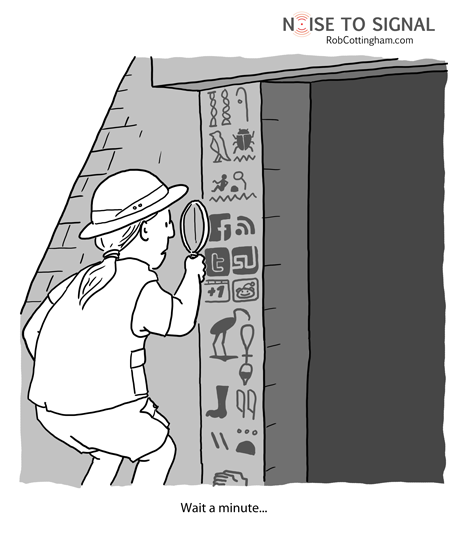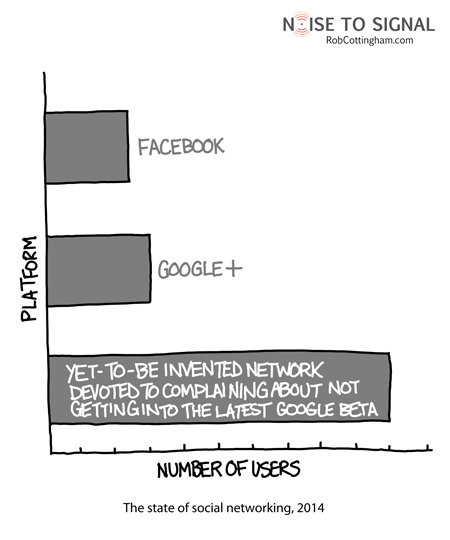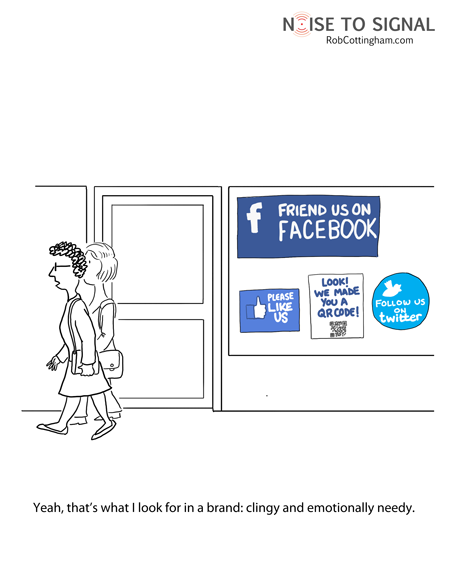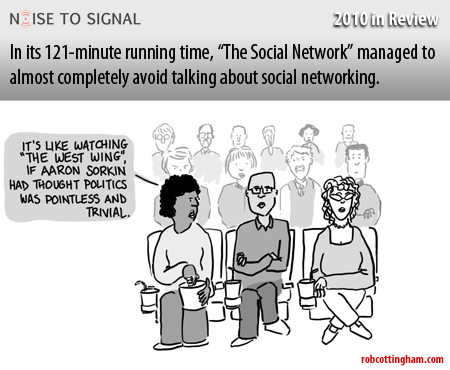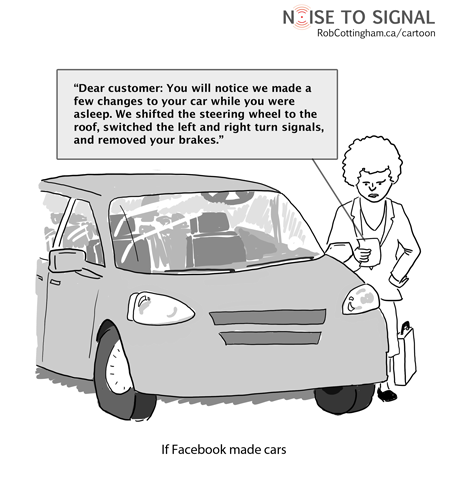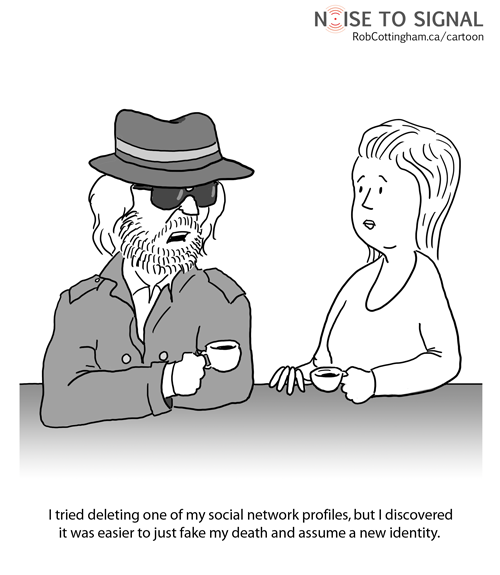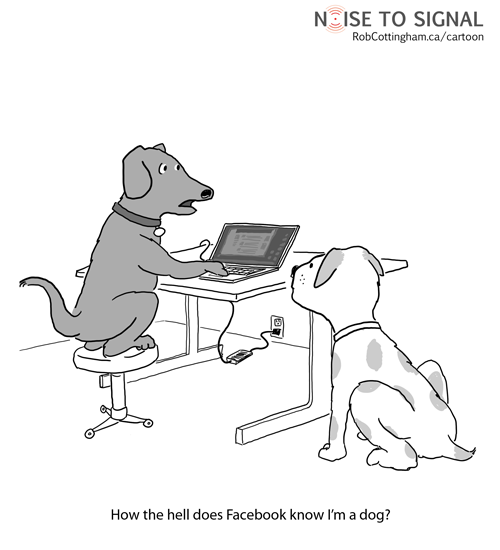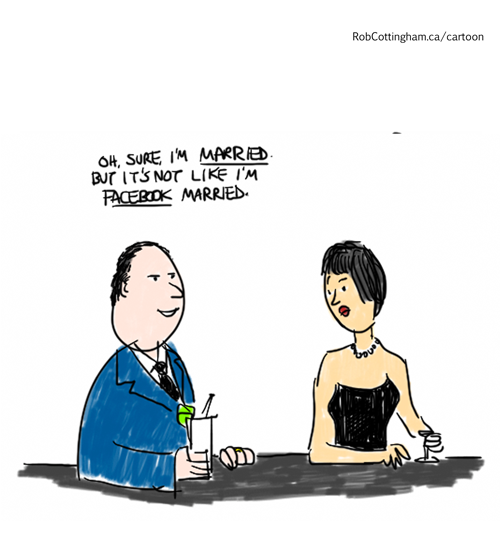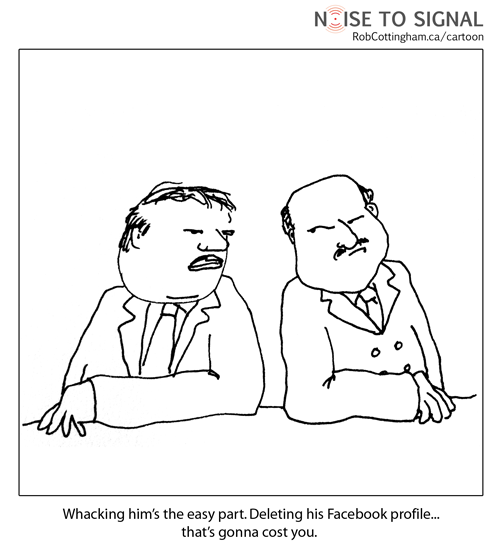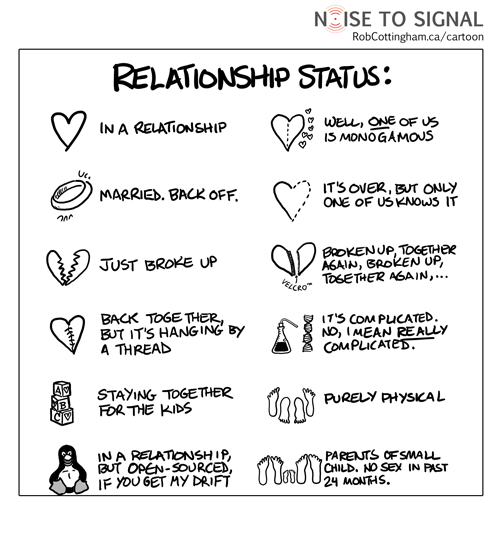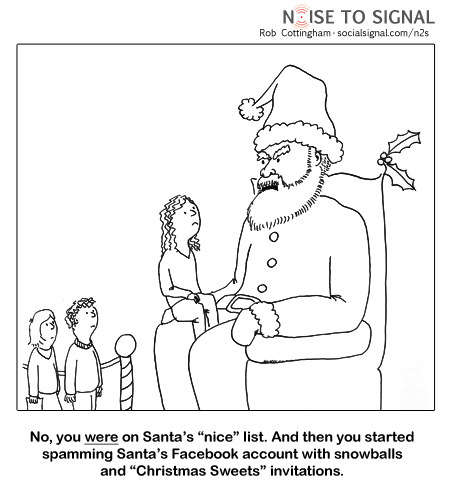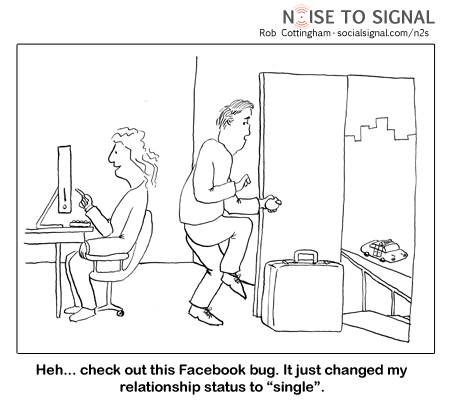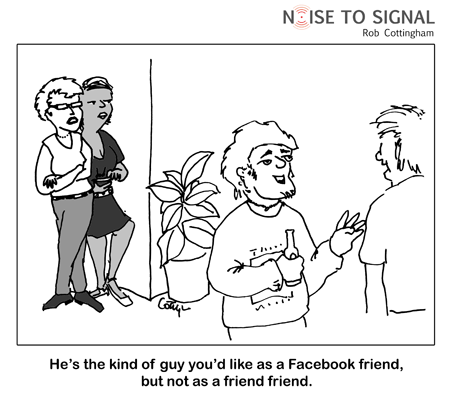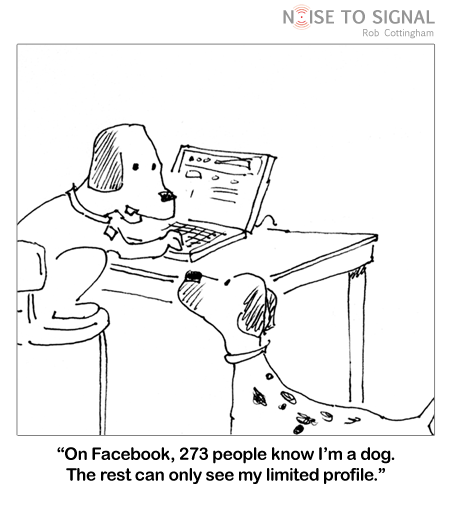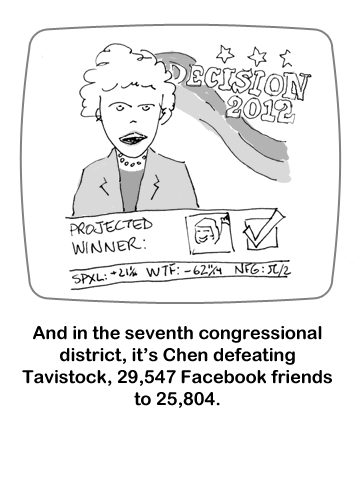Originally posted on ReadWriteWeb
This is for every would-be Internet mogul who has yet to type </head> on their big project, but has already written the speech they’ll give when they ring the opening bell at the NYSE.
(I say this as someone who had very specific plans for putting the kids through university on the proceeds of our Second Life venture. Sigh.)
Not that there’s something wrong with dreaming of making it big when you read about the Facebook IPO or the Gurflr acquisition or whatever’s chewing up the trending topics in Silicon Valley this week. There’s a lot of pleasure in picturing yourself in the shoes of the latest tech gazillionaire.
But not nearly as much pleasure in walking in them. At least, not while they were treading the winding, rocky path you have to follow to get there: all that planning, building, reversing out of actual dead ends, plowing through the illusory ones, avoiding impending disaster, living through disasters that stop impending and start happening, nurturing a community of users, finding capital, running out of capital, getting hacked, making the wrong hire, losing the right hire to a better offer, finally gaining some traction and then promptly getting slapped with a patent suit, trying to decide when to hold back and when to scale…
…and knowing that for every Mark Zuckerberg, there are countless others who worked just as hard, were maybe just as smart, but who made just one wrong call, or had the dice come up snake-eyes at exactly the wrong time, or one month before coming out of stealth mode saw someone else launch with the same product.
It isn’t all or nothing, of course. It’s not like you either create Facebook or dress in a barrel for the rest of your life. Even when your web app dies a silent, unmourned death, you’ve learned something along the way, you’ve probably built relationships (and hopefully didn’t burn any), and if you have the appetite to set off on that path again, that’s capital you’ll be able to draw on.
Maybe more important is how you look at success. There’s room for a very few Facebooks in the world, and if that’s your definition of success, you’re almost certainly doomed to disappointment.
But if you see success in creating something brilliant or useful or entertaining that reaches – not multitudes – but enough people to make a real difference in the world, then you’ll see a lot more opportunity out there. And at least for me, letting go of creating everybody’s favourite thing creates the room to create nine people’s favourite thing.
Which, who knows? might well open up the creativity and experimentation it’ll take to create the Next Big Thing.

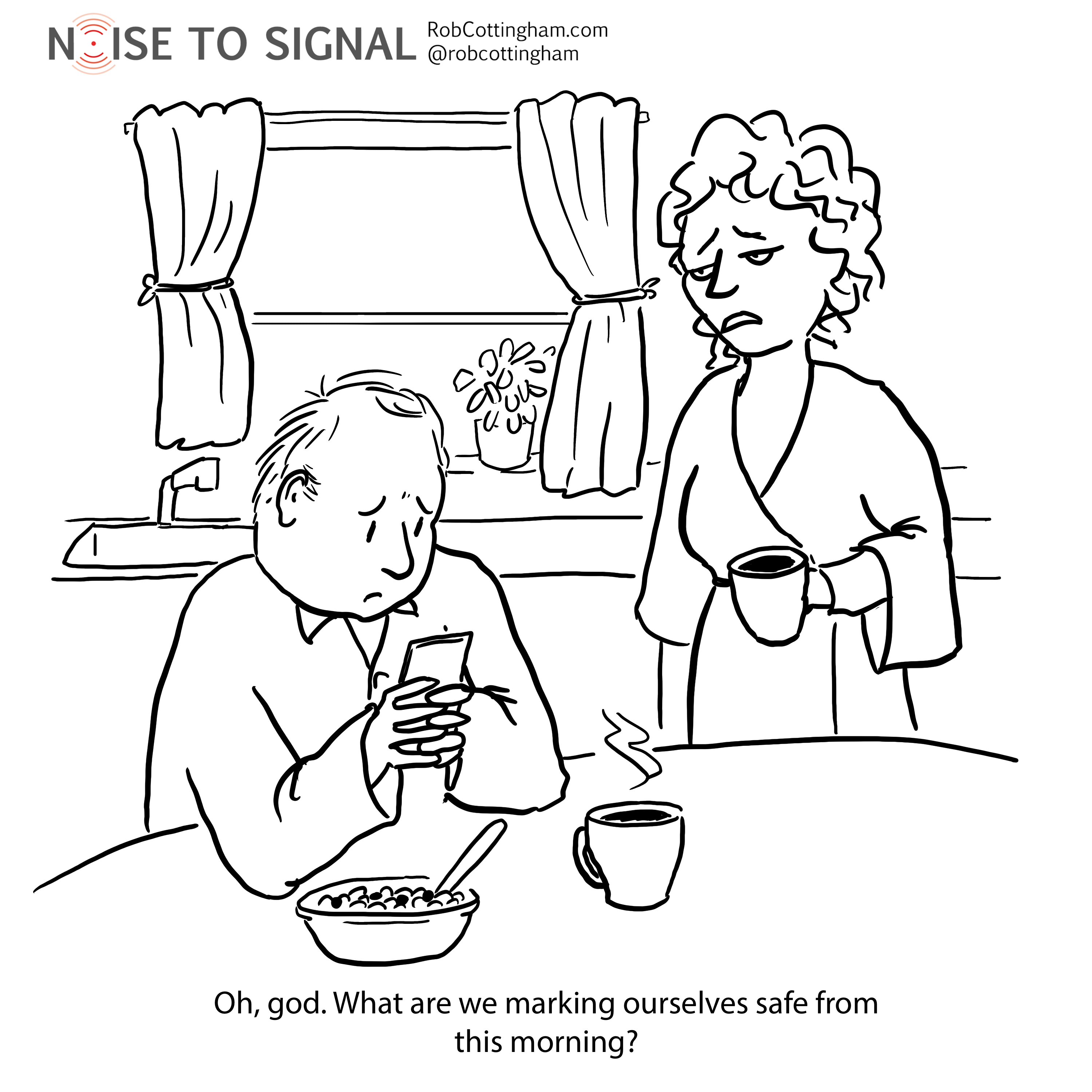
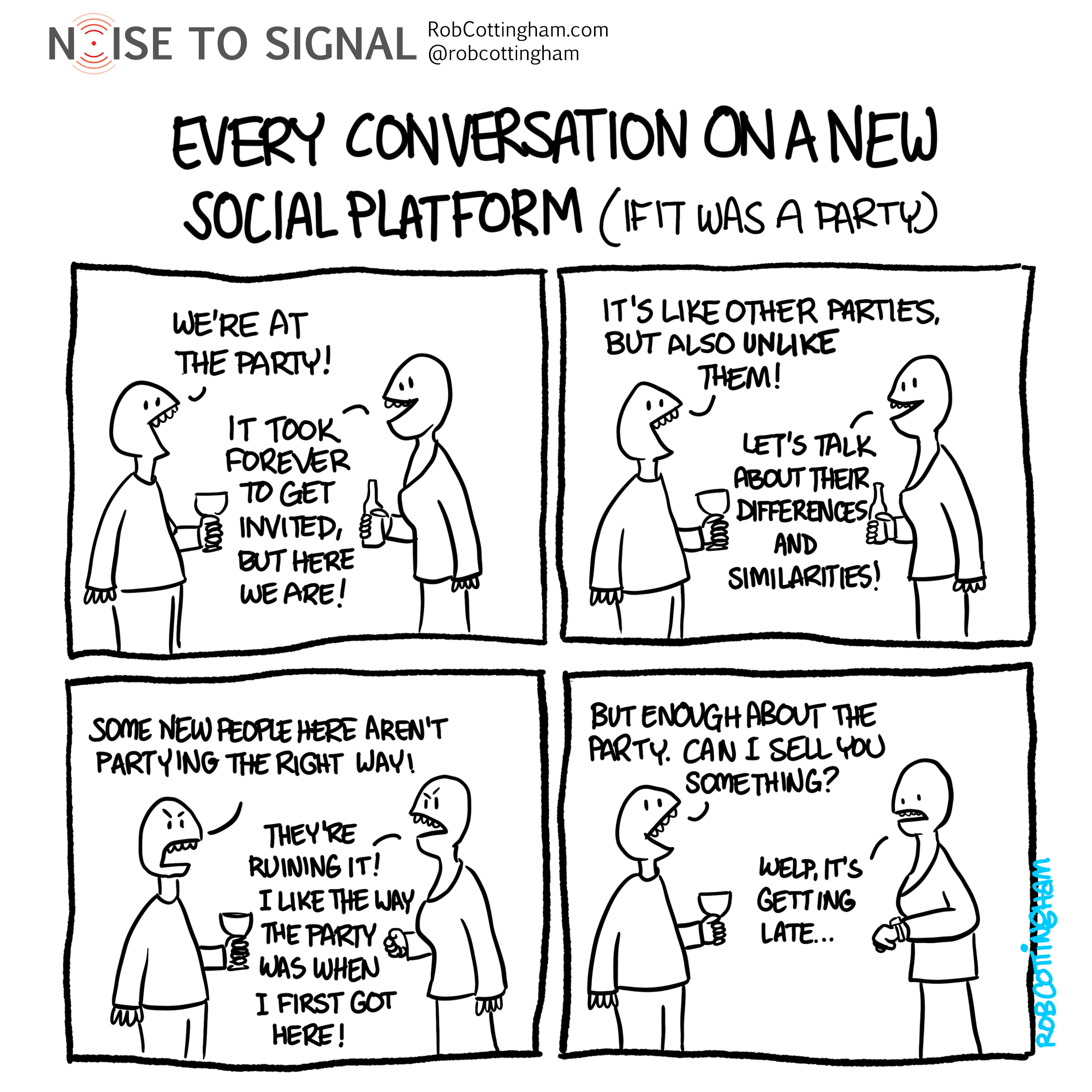
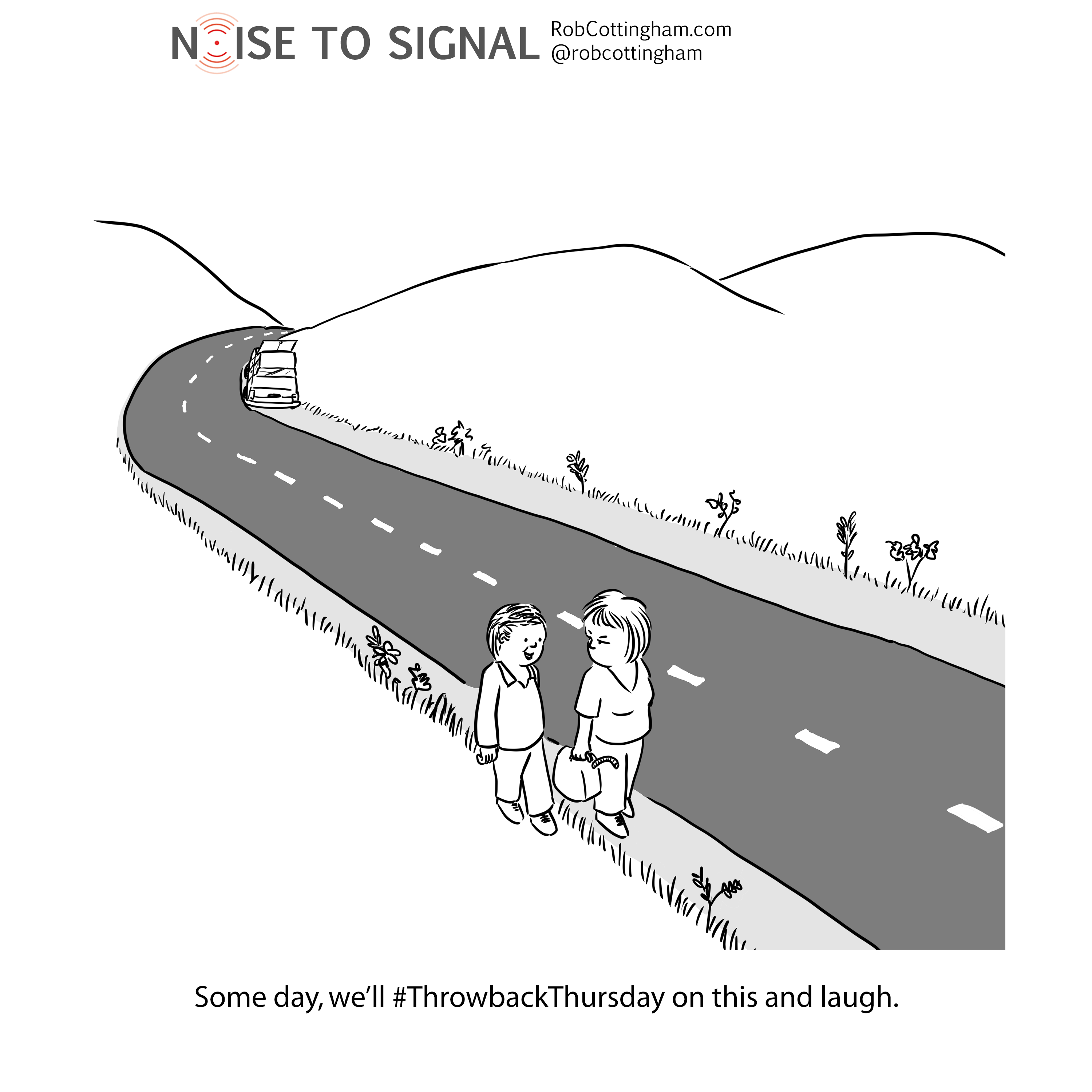
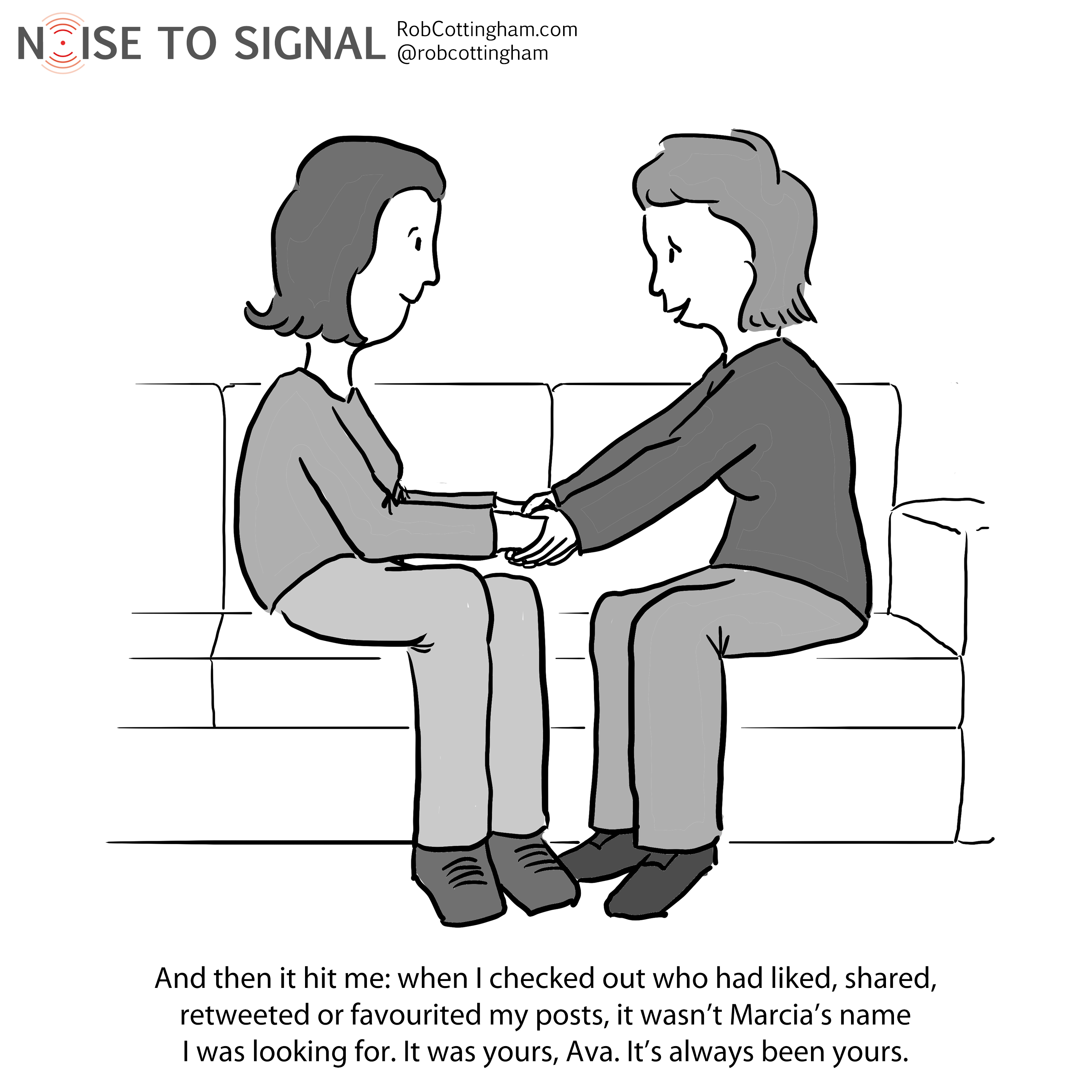
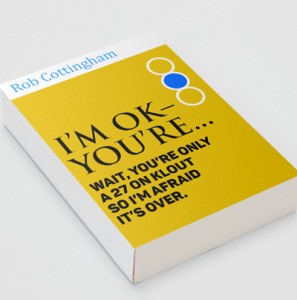 “Love doesn’t mean you retweet everything your significant other says. It means having the honesty to retweet only when you mean it. That’s the difference between love and Like.” From my forthcoming advice book on relationships and social media, I’m OK; You’re— Wait, You’re Only a 22 on Klout So I’m Afraid It’s Over.
“Love doesn’t mean you retweet everything your significant other says. It means having the honesty to retweet only when you mean it. That’s the difference between love and Like.” From my forthcoming advice book on relationships and social media, I’m OK; You’re— Wait, You’re Only a 22 on Klout So I’m Afraid It’s Over.